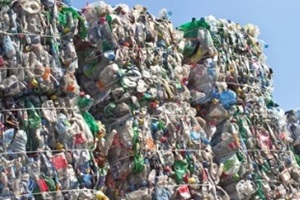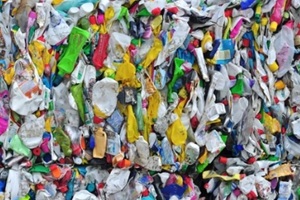April 28, 2025

From packaging and medical devices to automotive and construction materials, plastic is an integral part of modern life. However, with growing awareness around waste and sustainability, businesses across industries are actively exploring smarter ways to manage plastic use and recycling.
Rather than viewing these efforts as a burden, many companies are embracing the opportunity to align environmental responsibility with long-term profitability. When innovation meets sustainability, businesses not only reduce waste but also gain a competitive edge.
Economic models that integrate environmental responsibility with financial incentives provide opportunities for businesses to innovate, compete, and flourish while also addressing the growing concerns surrounding plastic waste and engaging in plastic recycling.
This article demonstrates how forward-thinking strategies and smart economic models can help transform plastic-related challenges into real opportunities for growth, efficiency, and long-term impact.
Regulatory approaches to plastic waste management, though well-intentioned, often create unintended consequences that hinder progress. Heavy-handed policies can stifle innovation, impose substantial financial burdens, and present compliance challenges that are especially challenging for small and medium-sized enterprises.
These measures often require businesses to dedicate significant resources to meet stringent requirements, leaving little room for investing in long-term, innovative solutions. Adding to this, rigid mandates tend to cultivate reactive responses rather than proactive strategies, focusing on short-term fixes that fail to address the dynamic and evolving nature of plastic production and waste management technologies.
Profitability offers a more effective and sustainable path forward, transforming plastic waste management from an obligation into an opportunity. When businesses see plastic recycling and reuse as avenues for revenue generation, they are far more likely to invest in these practices.
Placing environmental concerns at the forefront, shoppers are quickly gravitating toward brands that embrace green initiatives, often viewing these products as worth the investment. With this shift in consumer behavior comes a growing market opportunity for businesses that prioritize sustainability in everything that they do.
Companies that integrate profit-driven models often gain a competitive edge, as seen with initiatives like the Plastic Credit Exchange or waste-to-product innovations that create new revenue streams from recycled materials.
Aligning financial incentives with environmental goals can motivate greater participation while also sparking creativity, allowing businesses to succeed while addressing one of the world’s most pressing challenges.

Flexible and adaptable economic models are transforming plastic waste management into a dynamic and forward-thinking enterprise. Businesses that embrace these frameworks position themselves to remain agile as innovations in waste management technologies emerge.
Flexible models are able to more than just accommodate new solutions; they actively encourage research and development investments, paving the way for the adoption of more efficient and cost-effective processes.
Relying too heavily on a single technology or approach, however, can expose businesses to risks, particularly in a market where consumer behaviors and demands are constantly shifting. For example, the fluctuating demand for specific recycling methods or materials can create instability, making adaptability essential for long-term success.
Collaboration and circular practices further enhance the effectiveness of these economic models by leveraging partnerships and shared resources. Cross-sector initiatives such as the Circular Plastics Alliance in the European Union illustrate how collaboration can amplify impact, with the alliance aiming to increase the EU’s market for plastic recycling to 10 million tons by 2025.
Circular economy principles go beyond waste reduction, focusing on transforming discarded plastics into valuable, reusable materials. Companies such as Ecoalf have demonstrated this concept by producing high-quality fabrics and clothing from ocean plastics, creating both environmental and economic value.
Early adopters of sustainable waste management practices have the unique opportunity to position themselves as leaders in an increasingly eco-conscious market. Companies that act decisively not only demonstrate their commitment to environmental responsibility but also set industry benchmarks that competitors must strive to meet. Proprietary waste management methods can further amplify these advantages.
For instance, businesses that develop innovative, patentable technologies can gain intellectual property rights, opening doors to licensing agreements and creating additional revenue streams.
Transparent environmental commitments also enhance brand reputation, attracting consumers who prioritize sustainability. Environmentally conscious consumers represent a growing market segment eager to support sustainable businesses. Their loyalty offers a distinct competitive advantage to companies that prioritize eco-friendly strategies in their processes.
Engaging consumers in sustainable practices is equally essential to driving widespread participation. Programs including the deposit refund systems have proven highly effective at encouraging recycling behaviors. Norway’s bottle deposit program, which achieves plastic recycling rates exceeding 97%, stands as a compelling example of how financial incentives can motivate consumers.
Diversion programs like Zero Net Waste offer companies a proactive way to manage their plastic use more responsibly. Instead of relying on offsetting, these initiatives focus on reducing, reusing, and diverting plastic waste from landfills through improved design, process changes, and closed-loop systems. By participating in programs like Zero Net Waste, businesses can demonstrate a clear commitment to sustainability while making meaningful progress toward long-term waste reduction goals.
Educating all relevant parties about both the economic and environmental benefits of these initiatives is fundamental to their overall success, and consumers, investors, and partners alike need to understand how sustainability aligns with profitability and long-term growth.
Having a well-informed network of people strengthens participation rates and cultivates greater collaboration, helping businesses unlock competitive advantages while addressing the pressing issue of plastic waste.

Addressing the plastic waste crisis requires a bold shift in perspective, one that views sustainability not as a regulatory burden but as a pathway to profitability and innovation. Aligning environmental responsibility with economic incentives allows businesses to tackle waste effectively while enhancing competitiveness in a rapidly evolving market. Embracing adaptable economic models and promoting innovation are essential for creating long-term solutions that benefit both the planet and the bottom line.
Take the next step in transforming the industry: join PLASTICS, the Plastics Industry Association, to access cutting-edge resources, learn about the benefits of plastic recycling, collaborate with visionary leaders, and uncover opportunities to develop sustainable, profitable solutions that position your business at the forefront of progress in plastics.
PLASTICS and the Future Leaders in Plastics (FLiP) Committee are devoted to supporting and encouraging the next generation of plastics leaders who will play a crucial role in the innovation, technology and future of the plastics industry. FLiP’s mission is to provide young professionals under the age of 40 the exposure, education and resources they need to build lifelong careers in plastics. Want to join? Want to get your employees involved? Email: [email protected]